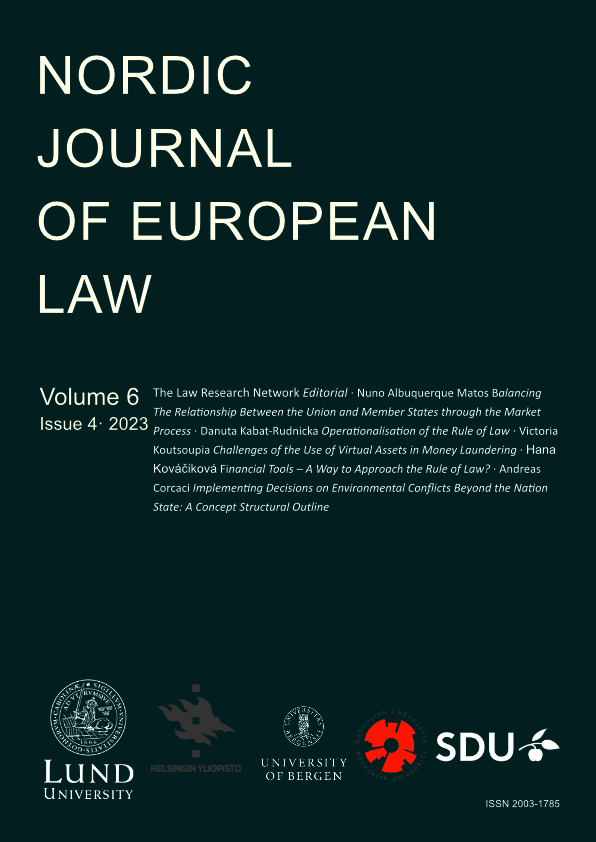Operationalisation of the Rule of Law
Main Article Content
Abstract
The European Union is an international organisation, a derivative structure, the existence of which depends on its Member States. It is an economic and political entity as well as a community of values, but first and foremost, it is a legal entity. It is a community of law, and it is only through the compliance of all states and the EU itself with values, principles, and rules, including the rule of law, that this non-state entity exercising public authority is able to function and develop. And even if the Treaty on the European Union did not encompass the rule of law, the latter would still apply as a general principle of EU law derived from the constitutional traditions common to its Member States. In the EU, the rule of law has been elevated to the rank of a value, a leading axiological category underpinning the entire structure – an element of European constitutional identity. Based on the recent jurisprudence, the article shows how the rule of law as a value enshrined in Article 2 TEU, has been operationalized by the Court of Justice. On the one hand, there is a judicial mechanism to the extent that other provisions of the treaty and secondary law confirm this competence, while on the other, there is a political mechanism applicable in matters not covered by substantive EU law. In the EU, the judicial mechanism is by far the most effective of the two, while the political mechanism does not work as its effectiveness depends on the goodwill and cooperation of the Member States.
Article Details

This work is licensed under a Creative Commons Attribution-NonCommercial-NoDerivatives 4.0 International License.

